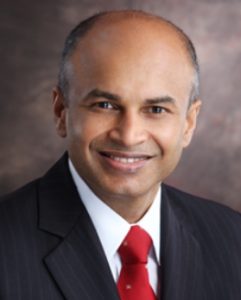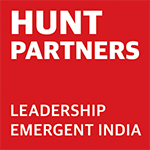Samir ShahExecutive Vice Chair and Group President of Dvara Trust
Samir joined Dvara Trust in February 2018 as Executive Vice Chair & Group President to take on responsibility for the strategic direction of the Dvara Trust’s mission of financial inclusion and portfolio management of group companies. He has over two decades of experience in building institutions and market infrastructure.
Prior to joining Dvara Trust, he was the Managing Director & CEO of NCDEX, India’s largest agri focused commodities exchange. During his tenure, the exchange had transformational impact on India’s agri economy through various technology and digital initiatives. He also worked closely with the warehouse regulator WDRA and the capital markets regulator SEBI to launch National E-Repository Limited (NeRL) to provide India’s first repository services for electronic negotiable warehouse receipts, which farmers can use to avail formal sector agri credit.
Before NCDEX, he was the Chief Business Officer of the Dubai Gold and Commodities Exchange (DGCX). At DGCX he led the growth of the exchange to make it the one of fastest growing exchange in the world, winning several global awards, amongst them were Contract of the Year and the Best Commodity Exchange in 2012.
Prior to this, he worked at global information company Thomson Reuters for 17 years, where he held various capacities including being the Global Head of Business Planning and Operations for a new inside-Sales unit at Thomson Reuters called Direct; also led Reuters’ India operations as the Managing Director in South Asia.
Samir began his career as an investment banker in Mumbai helping companies unlock value through public offerings and buy-out deals. He is an MBA in Finance, a Mechanical Engineer and has completedan Advanced Management Program from Wharton.

1. What was the mandate given to you by the Board when you took over in your role?
To drive the next generation strategy, vision and mission of Dvara Trust.
2. How much of that has been achieved? What were the challenges faced?
I have been in the role for about 18 months. We have managed to do quite a bit during this period. We now have a strategy and a vision for what what Dvara 2.0 might look like in the next 5-10 years. We have a leadership team that is driven to make that happen. We have re-energised the largest company in the group with fresh capital, a growth strategy and new management. We have re-started the incubation engine at Dvara via an entrepreneur-in-residence model and incubated 3 new start-ups that will drive the future of Dvara. The challenges have mainly been around re-starting an engine which needed to re-discover growth and energy. The challenges were to turn confident once again, about our future. So, mainly the challenges were internal and then to tell the story externally.
3. What are the key challenges your organization is facing currently? And what are the steps you are taking?
Different group companies face different challenges. The two main challenges are: 1. Dealing with the current NBFC trust deficit in India, and 2. Ability to recruit the right talent in some of our new incubations. On the first one, the key response is two-fold: one is to capitalise the capital hungry businesses well, and we have a good job on that front, second is to develop highly nimble and agile strategies to diversify sources of capital in order to keep the growth engine going. As regards the recruitment challenge, I would say it is a work in progress. Recruiting in some of the newer areas like data science, deep technology, machine learning is challenging.
4. What is your talent strategy? How do you draw the balance between home grown vs lateral hiring at the leadership level?
At a leadership level, our talent strategy is to attract entrepreneurs who are passionate about what we do and are driven by that passion to build new businesses, new ideas, solve newer problems we see in the communities of low income households that we serve. So the strategy is to create an environment that is seen as inspiring, nurturing and enabling to this next generation of entrepreneurs who will build the next generation of Dvara businesses and take our mission of financial inclusion forward.
5. How does your organization identify and develop future leaders?
From my experience, leaders can be developed if they share some intense experiences and if they can be part of an environment of high performance, high empowerment, challenging ambition and deep purpose. So what we are trying to do at Dvara is to create this very environment and go through this experience in a shared manner so as to develop deep bonds with each other and challenge each constructively, help each other with our blind spots and use this shared experience to build a strong leadership capability to drive the next phase of growth.
6. What are the 3 key aspects you look at when you hire your direct reportees?
Managers provide stability while leaders drive change . To me , a leadership team member has to believe in and internalize change and then drive it relentlessly . This is the most critical aspect I look for , change agents and partners in progress. Ability to take on responsibility and accountability is the second . Evolved on the EQ and IQ frame, to be able to become a follower at times is the third . A rock solid set of values and integrity is of course a given.
7. In a world full of Volatility, Uncertainty, Complexity & Ambiguity (VUCA), innovation has become one of the most important factor to transform a crisis into an opportunity. How do you promote Innovation?
The approach we are taking to innovation is to adopt an entrepreneur-in-residence model to really empower an entrepreneurial culture within the organisation and give birth to new ideas. To empower these entrepreneurs with the capital, coaching, mentoring, guidance and a shared sense of purpose to build new services for low income households in India
8. What are the 3 most pivotal moments in your career that you either learned from and/or that got you where you are today?
An experience of having to leave a start-up exchange arising out of an ethical conflict within a few weeks of joining it as CEO especially after a long and satisfying career with my earlier employer was a huge learning for me. The next one would be the experience of managing a market failure in a socially sensitive, politically challenging and active regulatory environment and then working to get things back on track by providing a long term solution for all stakeholders arising out of that market failure was hugely life-changing. At a more personal level, a health scare a few years ago that committed me to a path of fitness was very informing on the connection between fitness levels and a sustainable career.
9. What message would you like to share with young professionals at the start of their career?
Go long on experiences with people, situations, cultures and develop ‘range’ for the long run…
